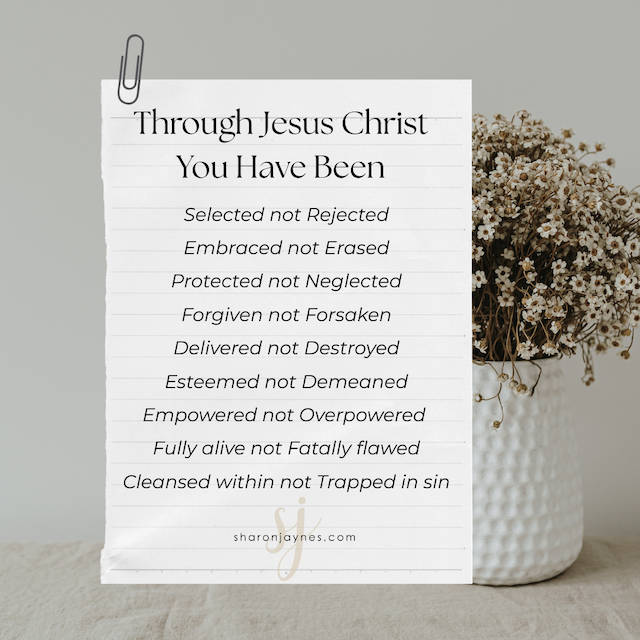Removing Judgement to Offer Compassion - Serenity in Suffering
As Election Day draws near, conversations become heated. Opinions parceled out like candy, abound whether you want them or not. Social justice issues seem as unresolved as they are unavoidable. It feels uncomfortable to discuss any of these issues due to heightened sensitivities. The need for removing judgement to offer compassion, seems especially needful right now.
Welcome to Mindfulness Monday! Where we learn some easy ways to be more present “in the moment” at our jobs, in our homes, with our families and friends. Learning to recognize God and what He has for us in each divine moment He offers. We acknowledge the belief that God is with us always. We confess His presence is available to us, lifting our spirit and helping us with power and grace. Learning to “be still”, so we can hear His voice and view ourselves, others and our surroundings through His eyes.
easier to judge
If we’re honest, we prefer to surround ourselves with like-minded individuals. In fact, those that drive the social media algorithms capitalize on this knowledge. They make sure we see more of what we “like”, things we agree with and people who think like us. They “hide” all of the opposing points of view. Of course the “outrageous” content or opposing view points still surface, but most people prefer to stay in their “bubble”.
Staying in our comfort zone of opinions, belief systems and world views proves less threatening. This makes judging others easier than hearing them out. We simply exclude anyone who disagrees with us, doesn’t behave according to our standards or pursues a different world view. Removing judgement to offer compassion takes time, self awareness and openness to another’s view. Genuine openness to another’s viewpoint may challenge our long held opinions. Maturity accepts the challenge as a pathway to personal growth.
removing judgement is no easy task
Some time back I read a quote, “Seeing emptiness, have compassion”, in a mindfulness article. I found it rather profound, yet simple at the same time. As an empath, this resonated with me in theory, however the more I thought about it, the more complicated it became. My initial reaction to others often tends towards compassion, but I began to see a level of judgemental thinking.
The topic of judging others is indeed a slippery slope. I realized how hard it is not to judge someone who is judging another person. I often hear conversations where one person is criticizing another person’s viewpoint and end up taking sides. The realization hit me just how hard it is to:
- Show tolerance for someone behaving irrationally or self-centered.
- See hatred in someone’s eyes and show compassion.
- Remain calm when shouted at for my viewpoint.
- Demonstrate selflessness when receiving selfishness.
seeing through eyes of compassion
Through mindfulness, I learn better self awareness which translates into compassion for myself and others. Mindfulness essentially is an inward work, involving awareness of thoughts and emotions and how they affect the body. Learning to cultivate self awareness not only keeps us in the present moment, but more open to others as well. What starts as a huge internal journey of discovery ultimately leads to an unintentional connection with others.
A large part of understanding who we are, is seeing ourselves in others. Created in the image of God, we have the ability to see that image in others. No life journey reflects completeness travelled alone. Life’s essence speaks of interdependency, or as Paul stated in Romans 14:7-8, “no man lives to himself or dies to himself.” Our interaction or “connectedness” with others reflects the essence of our being. Learning mindfulness teaches me to release judgement of self, surroundings and emotions. The result then overflows in extending that same non-judgement to others.
removing judgement to offer compassion
Two fellow bloggers that I greatly respect wrote excellent posts on the topic of political discourse and basically how to “agree to disagree”. They offer some great tips for respectfully engaging others whose views may differ from ours. Check out Lauren Sparks’ post “Take Off the Gloves! A Guide to Political and Other Discourse“. And Lisa Burgess’ post, “Want to Talk About the Debate? How to Talk Beyond Your Bubble”.
While I know the political and social justice discourse are hot topics right now, removing judgement to offer compassion applies to every relationship. Mindfulness offers ways of seeing the emptiness of others non-judgementally resulting in an offering of compassion.
Mindfully Seeing Emptiness
As mentioned earlier, we are social beings, exploring life’s connectedness. The art of healthy interdependency relies on engagement. At times engaging with others of opposing views is difficult at best. Especially someone we find offensive, aggressive, close-minded or judgemental. The mindfulness we cultivate on our own behalf, prepares us to temper our disgust, annoyance or anger we may feel towards another’s behavior or views. If you are new to mindfulness check out this post for some foundational instruction.
- When a person is aggressive, judgemental, irrational or selfish, most often it’s the result of insecurity or fear. There is an emptiness underneath.
- Strong emotion or opinions don’t arise without reason. A hole exists in need of filling. If we think about it, we all have similar reactions at one time or another.
- Acknowledge the image of God in others (Matthew 22:37-39). Loving your neighbor is not “touchy-feely”; it’s respecting and honoring the image of God within them. Treating them with compassion, respect, dignity and consideration.
- Remember viewpoints and opinions reflect emotions, life experience and thoughts. They are not “the person” and can result from trauma or negative experiences.
- Aggressive external projections speak of internal pain.
offering compassion
When you can see someone’s pain without judging the external reactions or projections, emptiness reveals itself. Removing judgement to offer compassion allows understanding and an openness for listening. At that point we unite in our human frailty and full awareness that we are more than our viewpoints, opinions and beliefs.
Feature Image Photo by Hannah Busing on Unsplash





